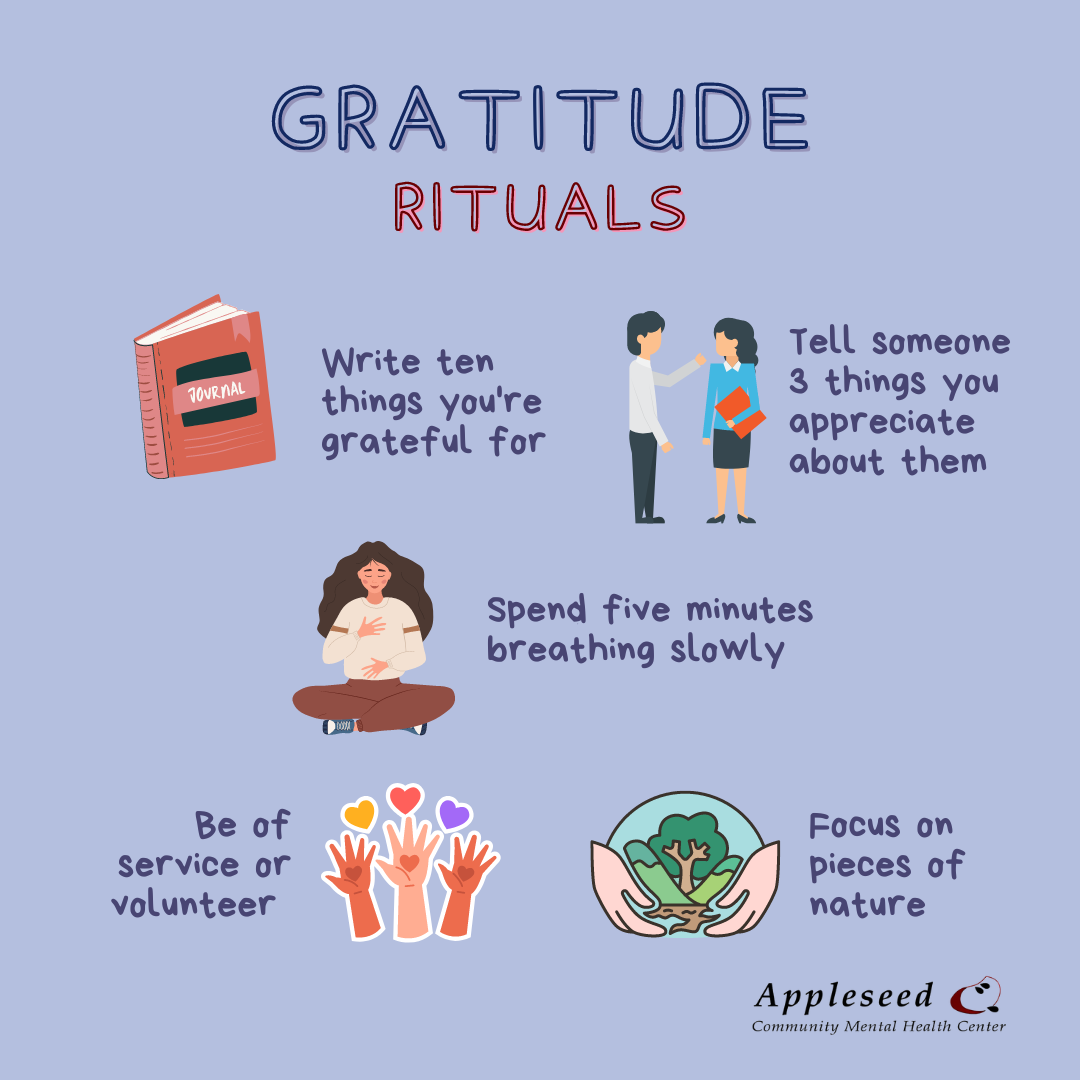In a world often bustling with chaos, uncertainty, and stress, the concept of gratitude offers a beacon of light. Gratitude, the practice of acknowledging and appreciating the good in one’s life, has been revered across cultures and philosophies for centuries. Yet, in today’s fast-paced society, it’s easy to overlook its profound significance.
In this article, we delve into the transformative power of gratitude practice, exploring its psychological, physiological, and societal benefits, as well as practical ways to incorporate it into our daily lives.
Understanding Gratitude:
Gratitude isn’t merely a fleeting feeling of thankfulness; it’s a state of mind, a way of being in the world. Psychologists define gratitude as a positive emotion that arises when one recognizes and appreciates the goodness in their life, regardless of its magnitude. It involves acknowledging the sources of goodness, whether from people, nature, or a higher power and recognizing that they exist beyond oneself.
Research in positive psychology has shown that gratitude is strongly linked to greater happiness, life satisfaction, and overall well-being. By shifting our focus from what we lack to what we have, gratitude reframes our perspective, fostering a sense of abundance and contentment. Moreover, practicing gratitude doesn’t negate life’s challenges but rather equips us with resilience and perspective to navigate them more effectively.

The Benefits of Gratitude Practice:
Gratitude practice encompasses a wide array of benefits, spanning psychological, physiological, and social domains. Let’s delve deeper into each of these areas to explore the profound advantages of incorporating gratitude into our daily lives:
Psychological Benefits:
Increased Happiness and Well-being:
Gratitude is strongly linked to greater levels of happiness and overall well-being. When we focus on what we’re thankful for, we naturally shift our attention away from negative emotions and stressors, leading to a more positive outlook on life.
Reduced Depression and Anxiety:
Research suggests that gratitude practice can mitigate symptoms of depression and anxiety. By cultivating a habit of gratitude, individuals develop coping mechanisms to deal with negative emotions and rumination, thereby promoting mental health.

Enhanced Self-esteem:
Grateful individuals tend to have higher levels of self-esteem and self-worth. When we acknowledge the goodness in our lives, we reinforce positive beliefs about ourselves and our abilities, fostering a sense of confidence and self-assurance.
Greater Resilience:
Gratitude acts as a protective factor against adversity, helping individuals navigate through challenging times with resilience and perseverance. By focusing on the positive aspects of life, even in difficulties, individuals develop coping strategies that enable them to bounce back from setbacks stronger than before.
Physiological Benefits:
Improved Sleep Quality:
Gratitude practice has been associated with better sleep quality and duration. Expressing gratitude before bedtime can calm the mind, reduce stress, and promote relaxation, leading to more restful sleep patterns.
Enhanced Physical Health:
Studies suggest that gratitude is linked to numerous physical health benefits, including reduced inflammation, strengthened immune function, and improved cardiovascular health. Grateful individuals are more likely to engage in health-promoting behaviors, such as regular exercise and nutritious eating habits, contributing to overall well-being.
Pain Reduction:
Gratitude has been shown to have analgesic effects, helping individuals cope with physical pain and discomfort. By focusing on positive emotions, gratitude practice can alleviate the perception of pain and promote feelings of comfort and ease.
Social Benefits:
Strengthened Relationships:
Gratitude fosters deeper connections and stronger bonds within interpersonal relationships. When we express appreciation and gratitude towards others, it enhances feelings of trust, empathy, and closeness, leading to more fulfilling and harmonious relationships.
Enhanced Communication:
Grateful individuals are more likely to engage in open and empathetic communication with others. By expressing gratitude and appreciation, they create a positive and supportive social environment that encourages authentic expression and mutual understanding.
Increased Prosocial Behavior:
Gratitude practice cultivates a spirit of generosity and kindness towards others. Grateful individuals are more inclined to engage in acts of service and altruism, contributing to the well-being of their communities and fostering a culture of compassion and cooperation.
In essence, gratitude practice catalyzes personal growth, promoting psychological resilience, physical health, and social connection. By cultivating an attitude of gratitude, individuals unlock a wealth of benefits that enrich not only their own lives but also the lives of those around them. Whether through keeping a gratitude journal, expressing appreciation to others, or simply pausing to savor the present moment, each act of gratitude contributes to a brighter and more fulfilling existence.

Incorporating Gratitude into Daily Life:
While the benefits of gratitude are compelling, integrating it into our daily lives requires conscious effort and practice. Here are some practical strategies to cultivate gratitude:
Keep a Gratitude Journal:
- Set aside a few minutes each day to reflect on what you’re grateful for and jot down three things you appreciate.
- Focus on specific details rather than generic statements, and savor the emotions associated with each gratitude entry.
Practice Mindfulness:
- Incorporate mindfulness practices, such as meditation or deep breathing exercises, to cultivate present-moment awareness and enhance gratitude.
- Pay attention to the sights, sounds, and sensations around you, appreciating the beauty and wonder of everyday experiences.
If you want to practice gratitude, see this to incorporate gratitude into daily life.
Express Gratitude to Others:
- Take the time to express appreciation to people who have positively impacted your life, whether through a heartfelt thank-you note, a sincere compliment, or a simple act of kindness.
- Cultivate a culture of gratitude within your relationships, celebrating milestones and expressing gratitude for the support and love you receive.
Find Gratitude in Challenges:
- Reframe setbacks and challenges as opportunities for growth and learning, recognizing the silver linings amidst adversity.
- Embrace a mindset of gratitude even in difficult times, acknowledging the lessons learned and the strength gained from overcoming obstacles.
Engage in Acts of Service:
- Volunteer your time and skills to support causes or individuals in need, experiencing the profound sense of gratitude that comes from making a positive difference in the lives of others.
- Cultivate a sense of interconnectedness and empathy, recognizing the abundance in your own life and the privilege to give back to others.
Conclusion:
In a world characterized by rapid change and uncertainty, cultivating a gratitude practice offers a transformative antidote to the stresses of modern life. By embracing gratitude as a way of being, we unlock a wealth of psychological, physiological, and societal benefits that enrich our lives and those around us.
Whether through keeping a gratitude journal, expressing appreciation to others, or finding gratitude amidst challenges, each act of gratitude serves as a stepping stone towards greater fulfillment, resilience, and connection.
As we embark on this journey of gratitude, let us embrace the profound truth that in acknowledging the abundance in our lives, we pave the way for a brighter, more compassionate world.
Join us on this odyssey of gratitude, as we embark on a quest to cultivate appreciation, abundance, and joy in our lives. Through the practice of gratitude, we unlock the door to a world brimming with possibility, where every moment becomes an opportunity for thanksgiving, and every encounter a celebration of the richness of existence.
